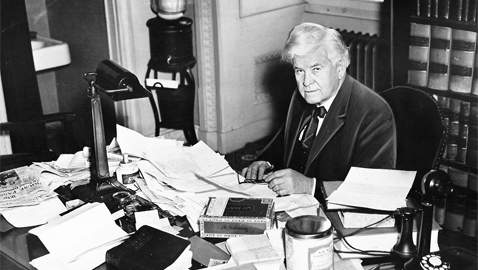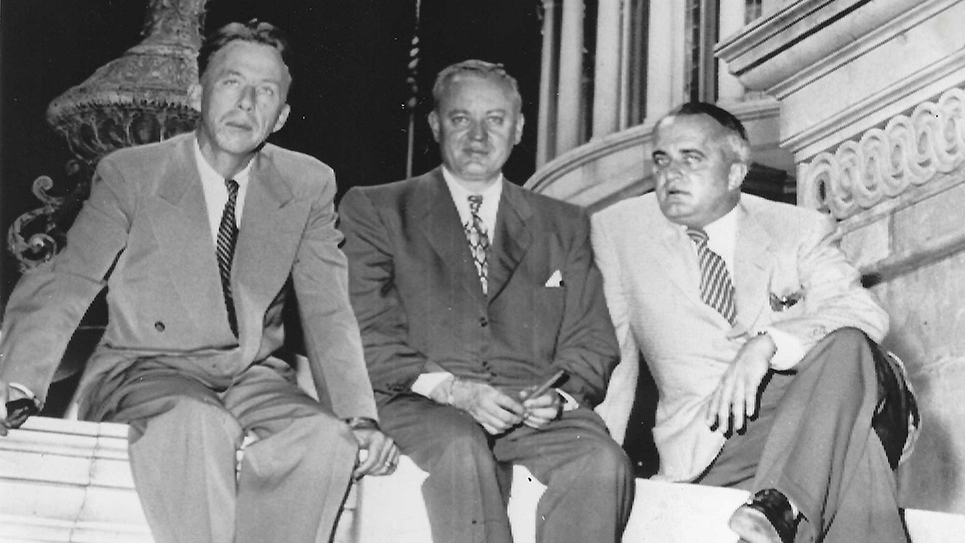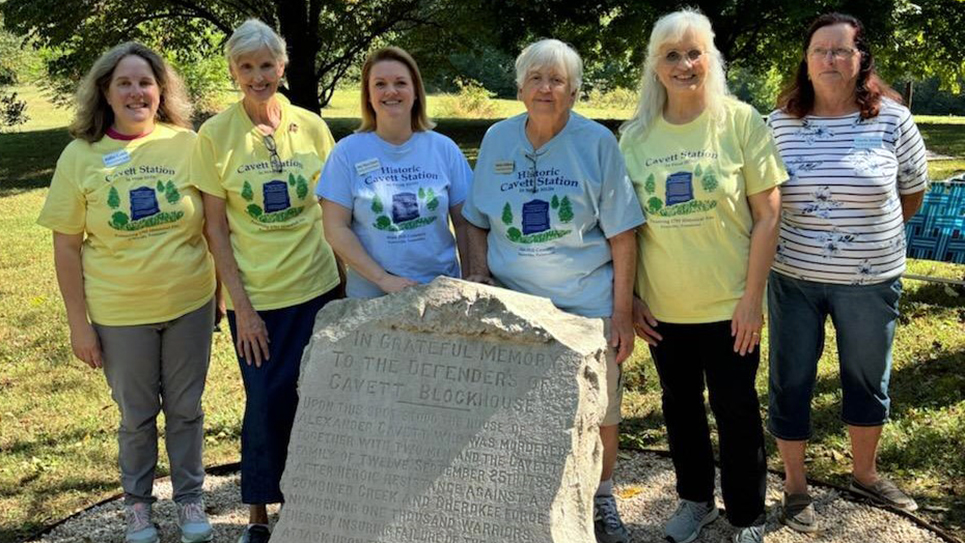Few modern day Speakers of the U. S. House of Representatives are as little remembered as Henry T. Rainey of Illinois. One reason for that is likely because his tenure as Speaker was quite brief; Rainey served as Speaker of the House from march 9, 1933 until his death on August 19, 1934. Yet Rainey was a long-time member of Congress and a fixture inside his own Congressional district. It was Henry T. Rainey who served as Speaker during the famous first “hundred days” of Franklin Delano Roosevelt’s New Deal.
It is likely difficult for many readers to comprehend the condition prevalent during the advent of the New Deal. The Great Depression followed quickly on the heels of the stock market crash in October of 1929. In an age before pensions, Social Security or the welfare state, millions of people lost their life’s savings with the crash of the stock market. Millions more lost all they had when banks all across the country started to fail. “Black Thursday” occurred when almost thirteen million shares were sold on the stock market; it was a record for the time. Yet, the following Tuesday, known as “Black Tuesday”, that record was surpassed when more than sixteen million shares were traded. Countless stocks were either virtually worthless or little more than mere scraps of paper. Many traders who had purchased stock on “margin” (meaning they had borrowed money to buy stock) were suddenly penniless. Purchasing power sank, factories slowed production and people lost their jobs. Over the next three years, despite President Herbert Hoover’s promises things would get better, they did not. In fact, they got progressively worse.
Folks lost confidence in the banks (and there was no Federal insurance on bank accounts in those days; that would come with FDR’s New Deal) and people hurried to withdraw their money from banks. By 1933, thousands of banks had closed their doors and simply gone out of business. Even the famous and wealthy suffered. One of President Roosevelt’s sons was traveling out West when his father had declared a bank holiday; he wired his father, asking for money and FDR replied the banks were closed and he had all of $7 in his pocket. The boy would have to do the best he could.
Roosevelt’s four-day bank holiday was an opportunity to allow Congress to pass legislation, which would hopefully, have the effect of making banks sound as well as restoring the public’s confidence in banking institutions. One aspect of the legislation eventually passed by Congress was the Federal Deposit Insurance Corporation, which was designed to protect the bank accounts of depositors. Another creation of the New Deal was the Securities and Exchange Commission, which began to regulate the stock market in the hope of preventing yet another disaster.
Men, desperate to support their families, or merely to survive, stood on street corners selling pencils or apples. Soup kitchens for the hungry became a fixture of America society, as did “Hoovervilles”, little villages where people lived in tarpaper shacks or cardboard boxes.
People were scared and hungry; I have never forgotten the story told by Congressman Stephen M. Young of Ohio, who was haunted by the story of a little boy from his state. The little boy had a pet rabbit and his family was starving and they ate the rabbit. The little boy was so distraught he went out and hung himself.
It was Henry T. Rainey who presided over the United States House of Representatives to pass legislation to help alleviate the suffering and despair of Americans.
Rainey was little known to the American public when he rose to become Speaker of the House, succeeding the colorful John Nance Garner of Texas, who had been elected vice president. Hailing from Carrollton, Illinois, Rainey looked and dressed more like a caricature of an old-time Southern politician with a thick head of white hair and oftentimes wearing a string tie. Rainey was referred to as the “Sage of Walnut Hill” by some members of the press, which was the name of his home and farm in Carrollton. Rainey was a large man, weighing in at some two hundred seventy five pounds and stood over six feet tall. Rainey was an affable sort, puffing on a pipe carved to resemble the face of a bulldog, while he chatted. Like many a Southern politician, Henry T. Rainey believed in the power of the spoken word and was an orator of the old school, yet unlike many Southerners, he disdained from telling jokes or funny stories while speaking. Speaker Rainey thought that detracted from whatever message his speech was trying to convey.
Henry T. Rainey had been born in Carrollton, Illinois on August 20, 1860, the oldest of three children. Rainey lived his entire life in Carrollton, save for when he was in Washington, D. C., when he attended Amherst College in Massachusetts. He was a good student and attended Union College School of Law, which later became Northwestern University. Rainey met and married his college sweetheart, Ellenora McBride, who was also a native of Illinois.
Eventually, Henry T. Rainey bought “Walnut Hill,” the sprawling farm and home he and his wife occupied near Carrollton. They lived in a three-story red brick mansion with impressive white columns framing the entrance. Inside, the rooms were paneled in black walnut. The Raineys signaled folks were welcome to drop in whenever the American flag was flying high outside their home.
The Raineys enjoyed collecting antiques and collectibles, with which they furnished their home. The Speaker was especially fond of his collection of Currier and Ives prints, many of which adorned the walls of his bedroom. Rainey also loved an oak desk, which had sat on the floor of the United States Senate decades earlier. It was hardly the only desk in the Rainey mansion; Rainey owned an enormous desk that had once belonged to Stephen A. Douglas, who had bested Abraham Lincoln in a Senate race, but lost the presidency to Lincoln two years later.
Rainey also enjoyed a very large library and frequently allowed farm boys in the area to use his books for study.
The grounds of Walnut Hill had been built with the idea of folks coming to visit and the Speaker spared no expense. There was a wading pool for children, as well as a playground. Adults could enjoy a small golf course, a lake for swimming, trails for horseback riding, or the tennis courts. There was yet another lake, which was used for boating and swimming. There were picnic grounds and a teahouse and flower gardens. The Raineys delighted in showing off their herd of Japanese deer, Sika-Siko, which meant scared in Japanese. Speaker Rainey had been thrilled when he had first seen a specimen of the Japanese deer at the Washington Zoo. He had obtained at least two doe and one buck when he traded a porcupine to the Zoo.
Returning home to Carrolton, Henry T. Rainey was a small town lawyer, but he was successful enough to provide a comfortable life for himself and his family. The marriage of Henry and Ella Rainey was especially close; Mrs. Rainey was an accomplished and informed woman and her husband’s Congressional career likely would not have been as successful without her. Like Rainey’s friend and contemporary John Nance Garner, Rainey employed his wife as his legislative and research secretary. Garner’s wife “Ettie” remained his personal secretary from 1903 until his retirement in 1941. Interestingly, at least three future Speakers of the House first came to Congress in 1903: Henry T. Rainey, John Nance Garner and Nicholas Longworth.
Ella Rainey was apparently so efficient no less than muckraking journalist Drew Pearson, a fierce critic of Congressional nepotism, said the money paid to her was well spent. When not in Carrolton, the Raineys lived quite modestly in a small apartment on Sixteenth Street in Washington, D. C. Neither Speaker Rainey nor his wife had been much taken with Washington society prior to his election. After becoming Speaker, that changed and the Raineys left their modest apartment for more elegant accommodations in the Sheraton Park Hotel. Speaker Rainey was described as “a wonderful department store Santa Claus with his white hair, rosy cheeks, comfortable upholstered figure and benevolent but sleepy look.” Evidently, many believed it was Ella Rainey who was the driving force, as it was said she provided “most of the enthusiasm and ambition” for the pair.
Rainey first came to Congress in 1903, after winning the 1902 election. The future Speaker represented a district in the Southern part of Illinois, which usually voted Democratic. Rainey had tried to win the Democratic nomination, which was made by convention, in 1896, 1898, and 1900. There were eight counties in the district and each county usually had a favorite son to promote. After winning the nomination in 1902, Rainey remained the choice of Democratic voters in his district until his death.
Prior to Rainey’s election to Congress, it had been a tradition for the congressman elected by the district to serve only a single term in office, thereby rotating the seat amongst the various counties in the district. Almost immediately after his election, Congressman Henry T. Rainey announced he did not intend to follow that particular tradition and would be a candidate to succeed himself. His strategy worked; at the 1904 Democratic convention inside his Congressional district, the favorite sons withdrew their own candidacies one-by-one. Yet, Rainey quite nearly lost the general election that, winning reelection by only 1,642 votes. Rainey’s political fortunes had been affected by the popularity of President Theodore Roosevelt, who won in a landslide. Rainey barely won, although he represented a traditionally Democratic district, yet he was the only Democratic congressman from Illinois to survive the Roosevelt juggernaut.
Henry T. Rainey was not yet entirely politically secure inside his own district, despite having easily turned back a serious Republican challenge in 1906. Former Congressman William E. Williams had opted not to run in 1906, saying he thought Rainey should be given the opportunity to work on waterway legislation that would be beneficial to the district. In 1908, Williams was a candidate to return to Congress and charged Rainey with attempting to take credit for several of the former Congressman’s own accomplishments. Williams also claimed Congressman Rainey had supported increasing his own salary, as well as mileage compensation. The Democratic nomination was no longer determined by convention, but by a primary election. Rainey defended himself from Williams’ charges and pointed out the former Congressman had once lamented the district did not receive its full share of public favors precisely because it replaced its own congressman every two years. That argument seriously undermined the Williams campaign to oust Henry T. Rainey.
Rainey operated an efficient campaign organization under his wife’s direction. More than 200,000 pieces of literature and letters flooded the district before Election Day. Rainey was rewarded with a smashing victory, beating William E. Williams by a four-to-one majority. Not only did Rainey carry every county in the district, he won every precinct in the district, save for three.
Henry T. Rainey had demonstrated his political strength inside his own Congressional district and while the Republicans attempted to unseat him, he was routinely reelected in 1910, 1912, 1914, 1916 and 1918.
In 1920, women had the right to vote in presidential elections all across the country. Voters were weary with the administration of Woodrow Wilson. President Wilson had made a special call for voters to elect a Democratic Congress in 1918 and Americans had responded by electing Republican majorities. It was a stinging rebuff to the president, who was obsessed with the peace in Europe following World War I, most especially with American entry into the League of Nations. While campaigning on behalf of the League of Nations and American participation, Wilson had suffered a serious stroke in Pueblo, Colorado. Immediately taken back to the White House and protected by his wife, Edith, and his personal physician, Dr. Cary Grayson, few knew the extent of the president’s precarious health. Wilson quite nearly died and was seriously incapacitated. Ill, aging, and bitter, Wilson lay in the White House nursing his grudges along with his health.
Congressman Henry T. Rainey faced Republican Guy L. Shaw in the general election. Rainey was not especially concerned about the contest and defended American participation in the League of Nations. Shaw, on the other hand, was decidedly against the League of Nations with or without reservations on American entry into the organization. Shaw also called for American troops to be brought home immediately, while Congressman Rainey advised caution, saying there was a need to keep American boys in Europe for keeping the peace.
Warren G. Harding won the presidential election in a landslide and voters reinforced the GOP majority in Congress. Voters clearly wanted change and Congressman Henry T. Rainey was shocked when he lost to Guy L. Shaw by 3,909 votes. Rainey had run far ahead of the rest of the Democratic ticket inside his district, but it was not enough to overcome the tidal wave of Republican votes.
Rainey sought a rematch with Congressman Shaw in 1922. Rainey joked that every Congressman ought to be defeated once every eighteen years. Out of office, Rainey had to fight off two other Democrats inside the primary. Rainey was not overconfident in his 1922 campaign and worked hard to regain his seat in Congress. He beat Guy L. Shaw by over 5,000 votes. Shaw would make several attempts to oust Henry T. Rainey from Congress, but he never again won election to the House of Representatives.
Despite having lost his seniority with his defeat in 1920, Rainey began climbing the ladder of leadership inside the House. He became Majority Leader after the Democrats won back the House of Representatives in 1931; in 1933, with John Nance Garner having been elected Franklin Roosevelt’s vice president, Henry T. Rainey became Speaker of the House.
During the summer of 1934, the seventy-four year old Speaker was ailing and caught pneumonia. Rainey was hospitalized in St. Louis and was thought to be recovering when he suffered a heart attack and died the day before what would have been his seventy-fifth birthday. Mrs. Rainey had been quite concerned about her husband. She later said, “I knew my husband could not live long when I saw him.”
The two had visited, ate breakfast together and later that evening, enjoyed their last dinner together. Mrs. Rainey said her husband had been in very good spirits and was especially pleased by her bringing him some jam. Yet, she sadly concluded, “But something told me he would not last much longer.”
Mrs. Rainey’s premonition proved to be all too correct. A heart attack swiftly carried away Henry T. Rainey.
He was buried with all the pomp and circumstance befitting his office and was consigned to the soil of his beloved Carrollton, where he sleeps to this day.







